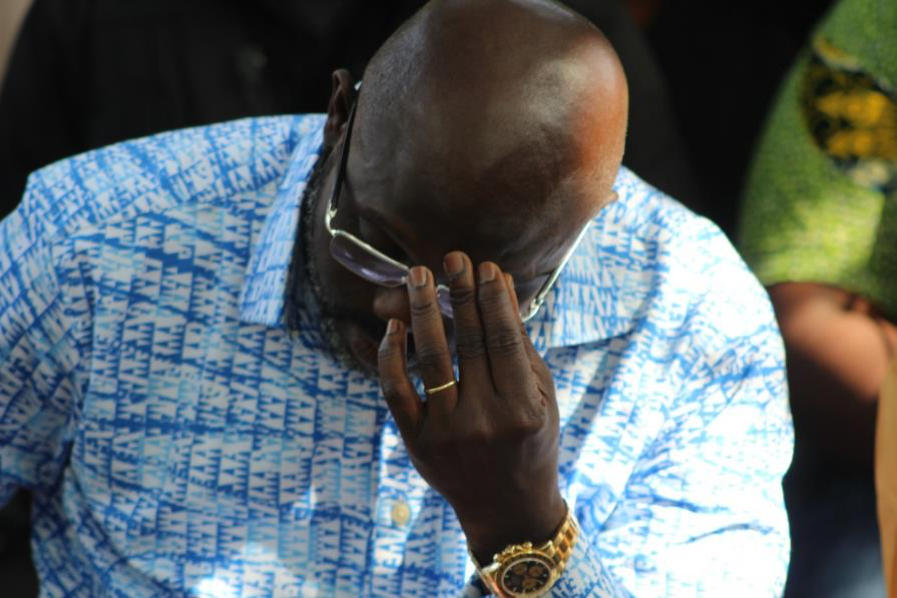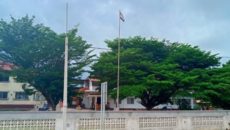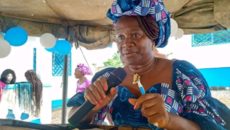MONROVIA, Montserrado – President George Weah is expected to announce a new Board of Governors for the Central Bank of Liberia next week, amid several reports noting that the bank lacks proper systems and controls.
Weah made the disclosure on Wednesday when he delivered a pre-recorded special address on the current state of the economy and a report from the General Auditing Commission on the botched US$25 million mop-up exercise.
He said lapses identified by the GAC report and previous investigations into the printing of new banknotes and the US$25 million mop-up fund points to “a major lack of systems and controls†at the Central Bank. He called into question the ability of its present leadership to effectively revamp its internal mechanisms to provide greater accountability and professionalism, in order to restore confidence and credibility.
“To provide the opportunity for the Central Bank to have a new direction, I have accepted the resignation of the deputy governor for economic policy. The executive governor is scheduled for age-related mandatory retirement in the next three months. During that period, we will work to transition the bank to new management,†he said in his address.
The president also disclosed that the new Central Bank leadership would be recruited by a vetting committee that will be comprised of independent professional Liberians who would be named shortly. The Liberian leader encouraged qualified citizens interested in becoming a part of the new leadership team to submit their applications to the vetting committee.
The president said that his administration will shortly announce policy measures that are intended to stabilize the economy in the short term that will promote medium to long term growth, such as reducing the prices of commodities on the market. He also announced that the government is working on attracting new investments in agriculture and to improve the business climate to reduce the costs and challenges of doing business in Liberia.
According to Weah, Liberia no longer receives the amount of aid it received in past years. Additionally, he said remittances coming from families abroad had also declined.
“The sudden drop in U.S. dollar inflows puts pressure on the economy, and devalues the Liberian dollar, moving prices upward. The macroeconomic policies we have today are policies tailored to the time that we had free inflows of United States dollars. We are now changing these policies to reflect the economic realities of our time,†he added.
He, however, assured the country’s international partners, including the U.N., A.U., and ECOWAS, who continue to provide support to the country of his leadership’s commitment to upholding the norms of good governance.
In April, the U.N. office in Liberia has threatened to withhold direct support to the country if the government does not address challenges in making timely and accurate reports for funding it receives through U.N. agencies. The heads of at least nine diplomatic missions in the country had also recently written the president about the abuse and misuse of donor accounts at the Central Bank.
In his address, the president also said his administration would no longer borrow from the Central Bank for its short-term liquidity needs. He also encouraged Liberians to develop confidence in the banking sector, noting that the government will also shortly announce new policy initiatives that should increase the confidence of citizens in the Liberian dollar.
“These policies will provide strong incentives for Liberians to keep their money in the bank and for commercial banks to invest more in the Liberian dollar economy,†he noted.
The president acknowledged the difficulties and hardships faced by Liberians because of the rising exchange rate of the U.S. to Liberian dollars and promised to have them resolved.
In summarizing the broad actions that the government is taking to stabilize the economy, the president said his administration is delivering a new and improved fiscal policy that will be announced with the passage of “a credible national budget†for the 2019-2020 fiscal year. He said budgets passed in previous years were above the country’s revenue potential.
“We are now working together with counterparts in the other branches of government to pass a realistic budget,†he said.
“Our actions will involve reform of our large wage bill; rationalizing Government spending to put more resources to critical sectors like health, education and agriculture; improving the way Government makes payments to Government entities and vendors who supply the Government with goods and services; and some actions on domestic arrears that the Government owes local vendors as a stimulus to the economy.â€
The president also announced that a team of financial experts from the International Monetary Fund would soon arrive in the country to create a program tailored for Liberia. He said the program will help the government to take the needed steps to stabilize the economy. However, he cautioned that the program will require great discipline across government budgets.
Meanwhile, the president said his government will institute a salary cap for government workers. He also said he would ask lawmakers to do the same.
“We will review performance and revenues from our state-owned enterprises, ensuring that leakages or inefficiencies do not undercut the ability of [the] government to support its people,†he noted.
On the corruption front, the president notably did not say he would publicize his assets declaration. He, however, announced that the administration would begin the review of all GAC audits for the last ten years to prosecute anyone implicated for corruption.
At the same time, he said the government would hire international auditing and investigative firms to go after all funds and resources that were illegally taken from Liberia over the last 10 years.
“We must all take the fight against corruption to a new level as a form of social justice for all our people,†he said.
The president’s addressed seemed to do little to allay fears about the declining state of the economy or the perceived level of corruption. Therefore, it will likely not stop the upcoming June 7 protest, which aims to get Weah’s administration to propose measures to reverse the economic downturn and address corruption.
Liberty Party’s deputy chairman for political affairs, Darius Dillon, described the president’s address as a “recited campaign rhetoric and the usual blame-game.†Dillon, who is also leading the June 7 protest and is a contender for the upcoming Montserrado senatorial by-election, said the speech lacked substance and failed to address the real issues.
“Did not raise hope, and did not inspire confidence. In fact, the exchange rate just got angrier!†he wrote on social media.
Featured photo by Zeze Ballah



